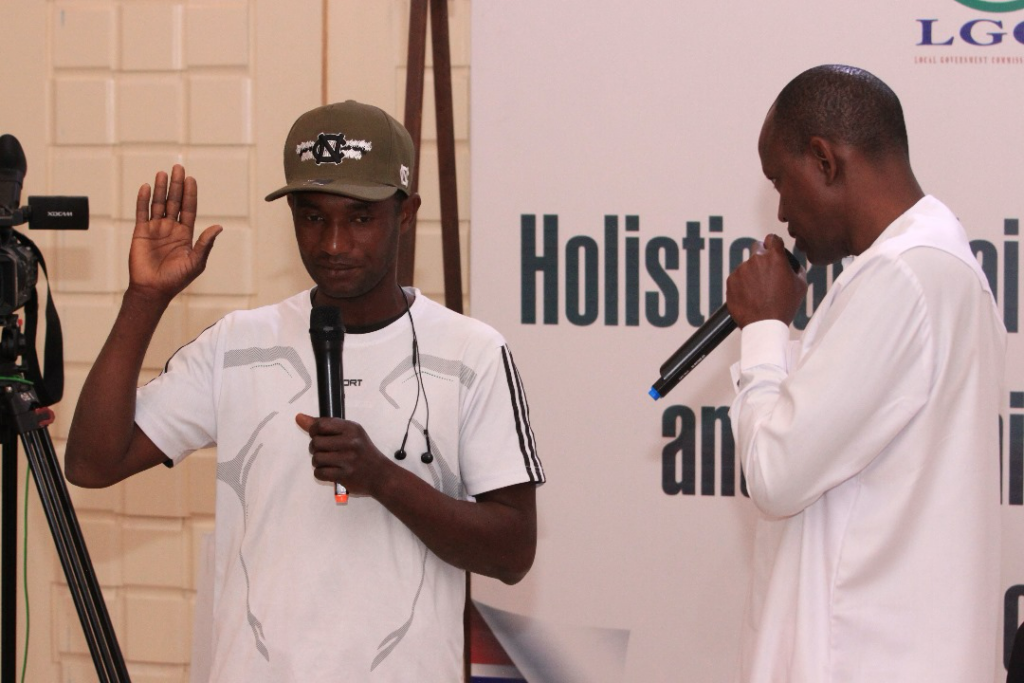BCC Chief Mechanic Testifies on Involvement in Deputy Mayor’s Personal Vehicle Repair and CEO’s Car Maintenance

By Fatou Sillah
Banjul City Council (BCC) Chief Mechanic Kajally Konjira testified before the Local Government Commission of Inquiry on Wednesday, where he was questioned about his involvement in the repair and maintenance of Deputy Mayor Omar Touray’s personal vehicle, as well as work performed on Chief Executive Officer Mustapha Bachilly’s private car.
During the proceedings, Counsel Sunkary Camara interrogated Konjira regarding the replacement of the engine in the Deputy Mayor’s Hyundai vehicle. Konjira confirmed his awareness of the matter but stated that he did not personally handle the repair.
“What was the amount involved in you changing the engine of the deputy mayor’s personal vehicle?” Counsel Camara Asked.
In response, Konjira stated that he was unaware of the amount as he did not work on the vehicle directly.
When pressed further, “You earlier mentioned here that you repair council vehicles, and you also made it clear that this vehicle was his personal vehicle, and you personally changed the engine, or you were involved when he was changing the engine; now who changed the engine?” Counsel Camara asked.
The witness clarified that due to his workload with council trucks, the repair work was outsourced to another mechanic.
“He gave the vehicle to the other mechanic because he asked me, and I told him that I was busy with the council trucks,” he said.
Counsel Camara asked the witness at what stage he was involved in the vehicle’s maintenance. The witness responded that he had no involvement in that task.
Counsel then inquired whether the witness had mentioned in his statement that D1 million was spent on changing the vehicle. The witness denied making such a statement. Counsel further asked if the witness knew the amount involved in the vehicle’s replacement. “But you did not know the amount involved in changing this engine,” She Asked?
The witness stated that the deputy mayor approached him, expressing the need for a new engine for his vehicle. The deputy mayor then took him to the CEO’s office and instructed the CEO to discuss the matter with him.
“He came and told me that he needed an engine and took me to the CEO’s office and said to me that he wants to change his engine, and he told the CEO to talk to me so that I can assist in changing the engine because the vehicle is stationed. And I told him that I cannot do it because I am busy, and he asked me to make the request for his vehicle. I then made the request and took it to procurement; that is where I stop,” the witness said.
Counsel asked the witness if he had a copy of the request in question, to which he replied that he did not. Counsel Camara then inquired about the amount specified in his request regarding the engine replacement.
“And you request for the amount of how much for that engine to be repaired.” She Asked?
“My request does not have an amount;” the witness responded
“When you took it to procurement, was it processed?” she asked.
The witness responded that he had simply signed the request and left it at the procurement office. “Making it seem as if you were the mechanic that check that engine and it requires change?” Counsel Camara asked.
The witness clarified that this was not the case.
“Then why would the deputy Mayor need you to send a request to the procurement,” She Asked?
The witness stated that the CEO simply asked him to make the request.
“You knowing that is the deputy Mayor’s personal car, why didn’t you tell him to make the request for himself,” the counsel asked
“Even my boss (CEO) explained for me to prepare the request for him,” The witness Said.
The witness was asked whether he had performed similar work for anyone else besides the Deputy Mayor. He responded that he had also repaired the tires and carried out other maintenance on the CEO’s private car. When asked how often he performed maintenance on the private vehicle, he stated that it sometimes took several months before he worked on the cars again. He was then questioned about the cost of maintaining the CEO’s private vehicle, to which he replied that he didn’t remember the exact amount, but that it was covered by the council.
The witness was further questioned about advising the council to transform three trucks, which he confirmed. He explained that these trucks had been out of service for eight years. After discussing the matter, his boss, who agreed with the suggestion, communicated with the CEO, Mustapha Batchilly, and the decision was made to proceed with the transformation.
The witness mentioned that the trucks were given to a welder named Omar Cham, whom he had recommended. However, he did not know how much Omar was paid for the work. When the witness informed Omar about the job, Omar mentioned that the CEO had already spoken to him. The witness clarified that he was not working alongside Omar, as Omar had his own team. He added that one of the trucks had been completed, and he had taken it to the council.“I asked Omar about it but he told me the agreement he has with my people is that he will work on the trucks but the scraps of the dismantled truck will be his,” he said.
The counsel inquired about who Omar was referring to, and the witness responded that it was the CEO, Mustapha Bachilly.

